Exploring Templestay’s Vision for the “Healing and Growth” of Society
Research Seminar on Templestay’s Social Values
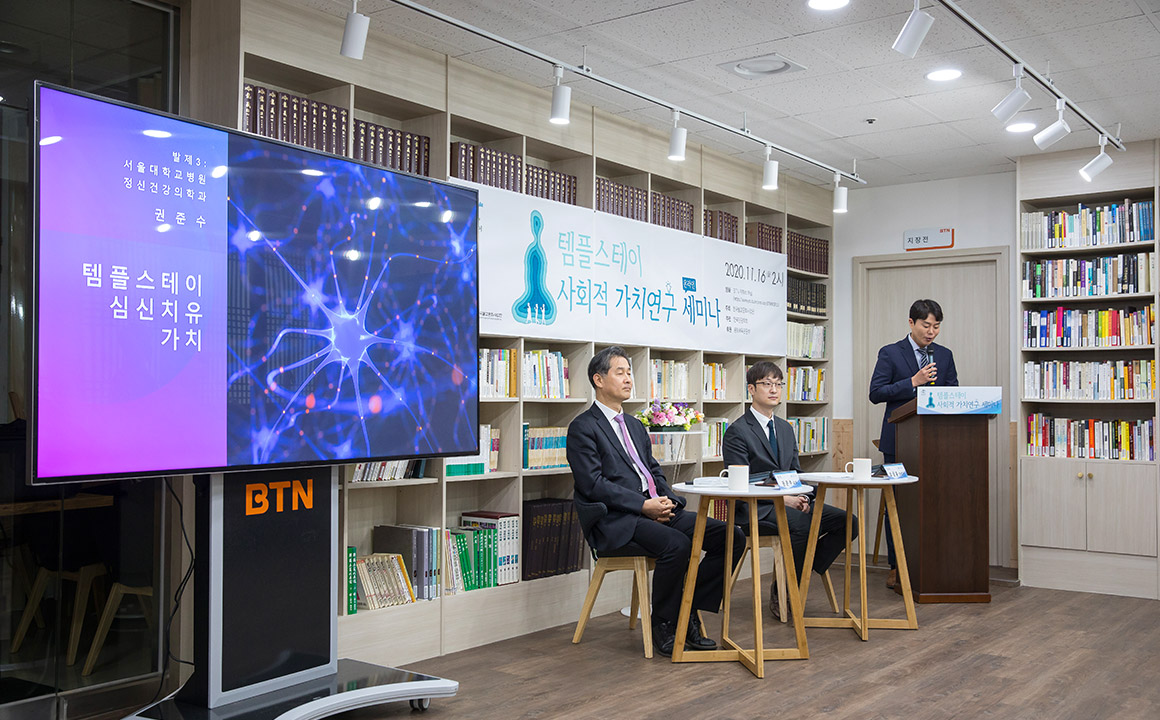
Since its launch in 2002 with the theme “Journey of Happiness in Search of the True Self,” the Templestay program has been a stepping stone to help Korean society grow and heal mentally. Templestay has also consistently carried out programs that support the underprivileged and promote social values. In order to shed light on Templestay’s social values, including its public, economic and healing significance, and to explore its future vision and policy directions, the Cultural Corps of Korean Buddhism (hereafter “Cultural Corps”) recently hosted the “Social Values of Templestay Seminar.”
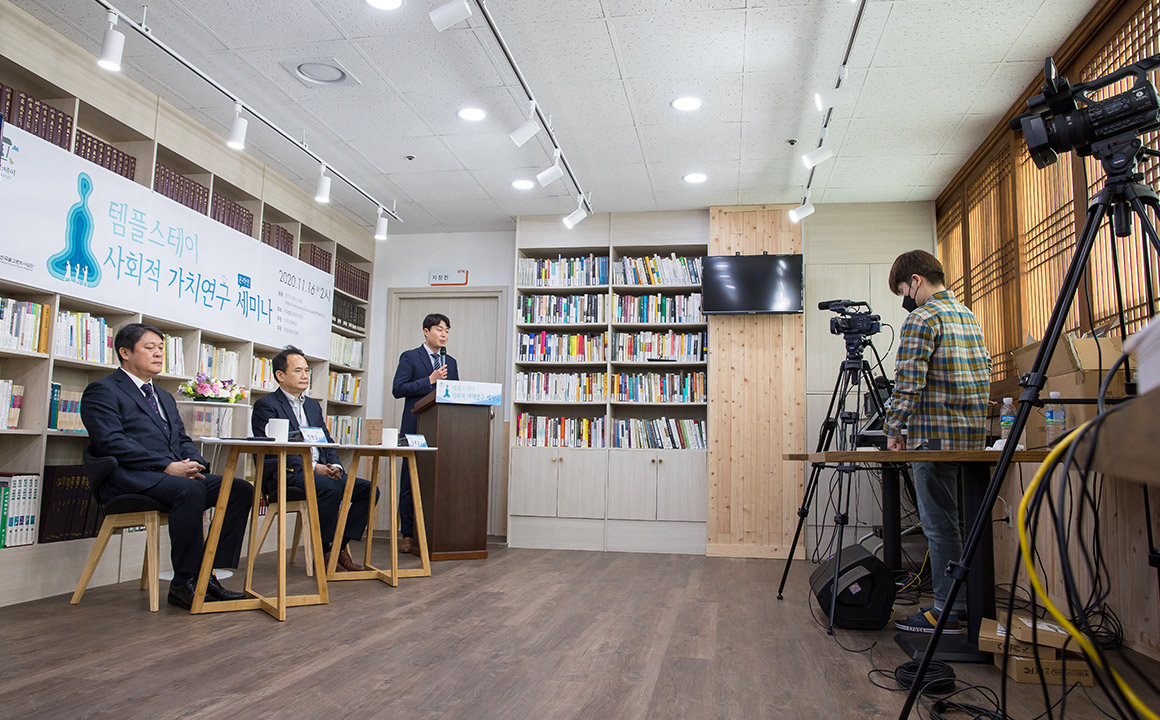
Held on Oct. 30 at the BTN Book Café, the seminar was hosted by the Cultural Corps, organized by the Tourism Sciences Society of Korea, and sponsored by the Ministry of Culture, Sports and Tourism. Due to the pandemic situation, the seminar was recorded for an online audience and will be made available to the public on Nov. 16 through BTN’s YouTube channel (https://www.youte.com/user/BTNWORLD).
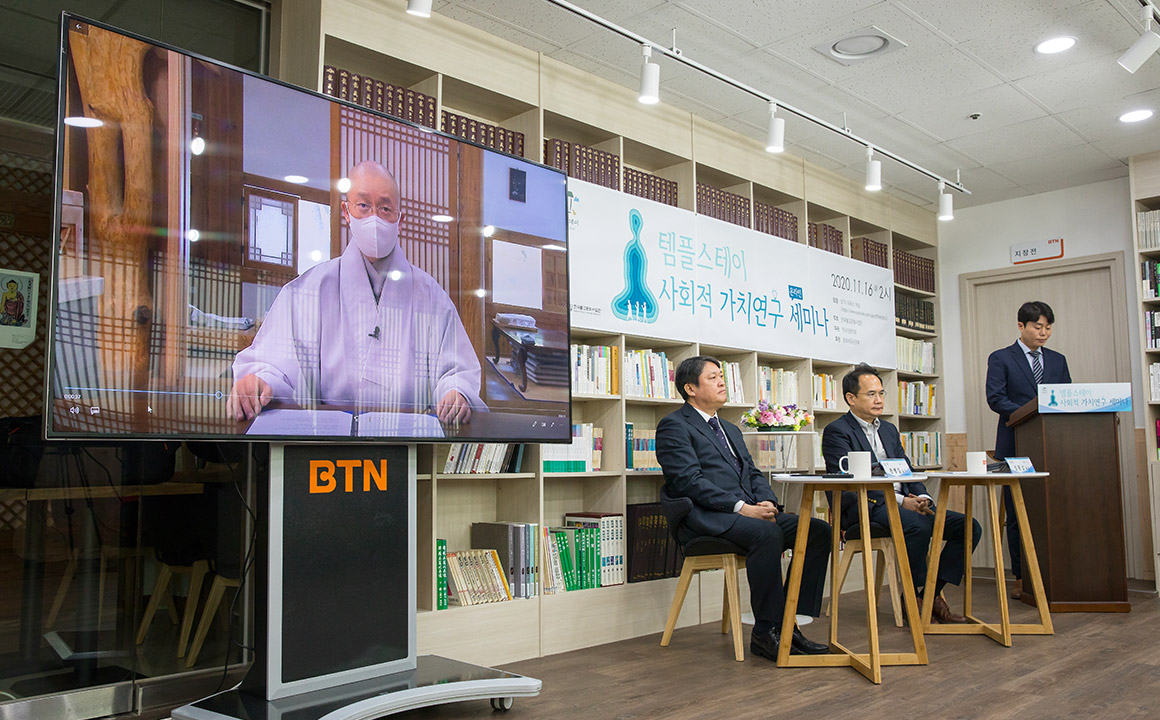
Ven. Wongyeong, director of the Cultural Corps, said in his opening address, “At present, Templestay programs are offered at 140 temples in Korea, and over 5 million participants have experienced the program as of today. We also continue to fulfill our social responsibilities by offering compassionate programs to share Templestay with the underprivileged. I hope the Templestay program continues to develop beyond Korea as a source of global cultural content and social service content. I am truly pleased to listen to the valuable opinions of respected researchers.”
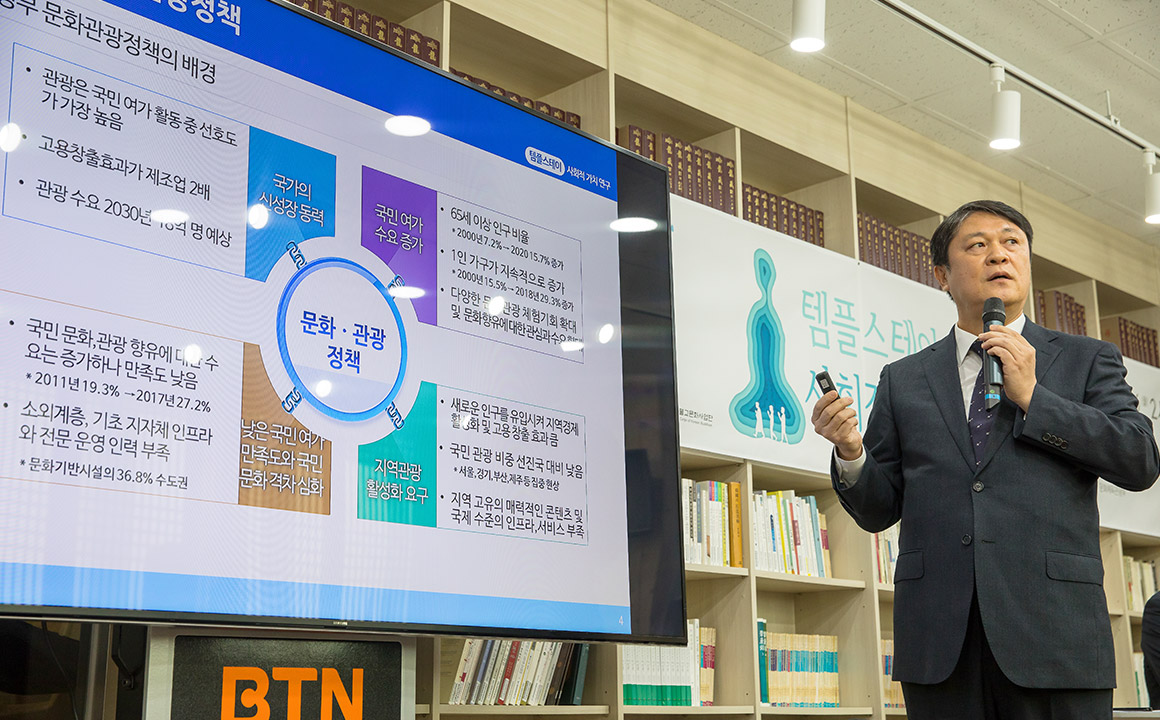
The Social Service Value of Templestay: a Platform of Understanding and Interaction to Heal Social Conflict
Presentations were divided into three themes: Templestay’s social service value, economic value and healing value. The first speaker, Prof. Jeon Byeong-gil of Dongguk University’s Dept. of Hotel and Tourism Management, delivered a presentation on a “reexamination of Templestay’s social values: its achievements and future tasks.” His talk was divided into four segments: cultural tourism policy and Templestay; comprehensive analysis of the positive functions of Templestay; Templestay’s operational results in social service; and how to realize the social values of Templestay. Prof. Jeon said, “Cultural tourism policy is the driving force behind national development, and public demand keeps increasing. As a global cultural product recognized by the OECD, Templestay is only available in Korea. Thus, its roles and status have been noticed in terms of realizing its cultural tourism value, wellness value, tourism and economic value, and social value. In particular, Templestay’s social service efforts to benefit the local community and the underprivileged has drawn attention in that they embody social values.” He continued, “Templestay encompasses broad social values, including dreams, forgiveness, hope and courage. As a platform of understanding and interaction to heal social conflict, Templestay can contribute to a happier life for everyone.”
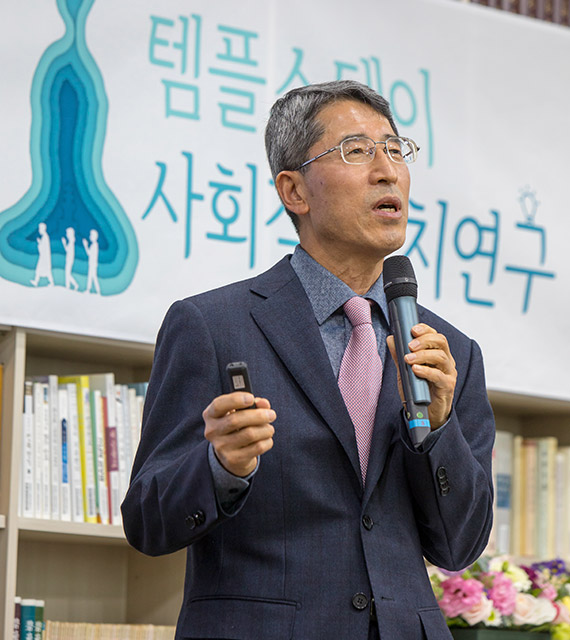
Templestay’s Economic Value: Consumers Give it Higher Value than its Cost
The second theme of the seminar, the “economic value of Templestay,” was presented by Prof. Lee Chung-gi of Kyunghee University’s Dept. of Hotel and Tourism Management. Introducing Templestay’s economic value, which had been estimated using the Contingent Valuation Method, Prof. Lee assessed the experiential value of Templestay for each person as 85,000-89,000 won, and the gross annual experiential value of Templestay as 25-26 billion won. He said, “Templestay’s genuine economic value was estimated at about 90,000 won per person. Considering that the current average fee is 70,000 won, this confirms Templestay’s economic value and proves the validity of Templestay’s operation. Given the underestimated possibility of its experiential value while some programs are not operating due to COVID-19, this result seems much more positive.” Prof. Lee elaborated, “Templestay’s value is decided not only by its programs but also by the sincere service of its manpower. It is my opinion that foreigners see more economic value in the Templestay program.”
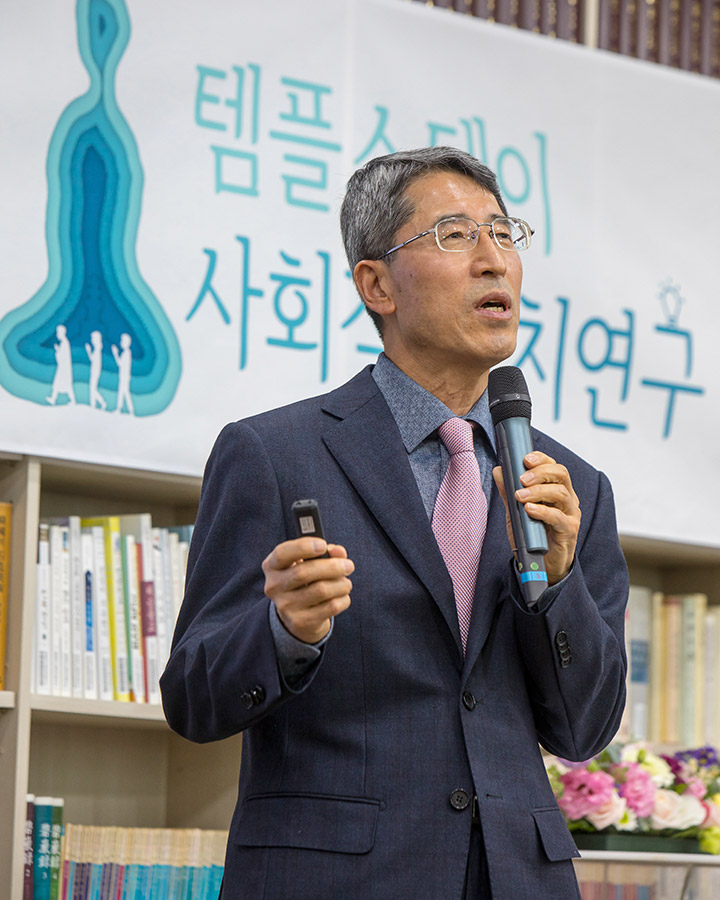
Templestay’s Economic Value: Consumers Give it Higher Value than its Cost
The second theme of the seminar, the “economic value of Templestay,” was presented by Prof. Lee Chung-gi of Kyunghee University’s Dept. of Hotel and Tourism Management. Introducing Templestay’s economic value, which had been estimated using the Contingent Valuation Method, Prof. Lee assessed the experiential value of Templestay for each person as 85,000-89,000 won, and the gross annual experiential value of Templestay as 25-26 billion won. He said, “Templestay’s genuine economic value was estimated at about 90,000 won per person. Considering that the current average fee is 70,000 won, this confirms Templestay’s economic value and proves the validity of Templestay’s operation. Given the underestimated possibility of its experiential value while some programs are not operating due to COVID-19, this result seems much more positive.” Prof. Lee elaborated, “Templestay’s value is decided not only by its programs but also by the sincere service of its manpower. It is my opinion that foreigners see more economic value in the Templestay program.”
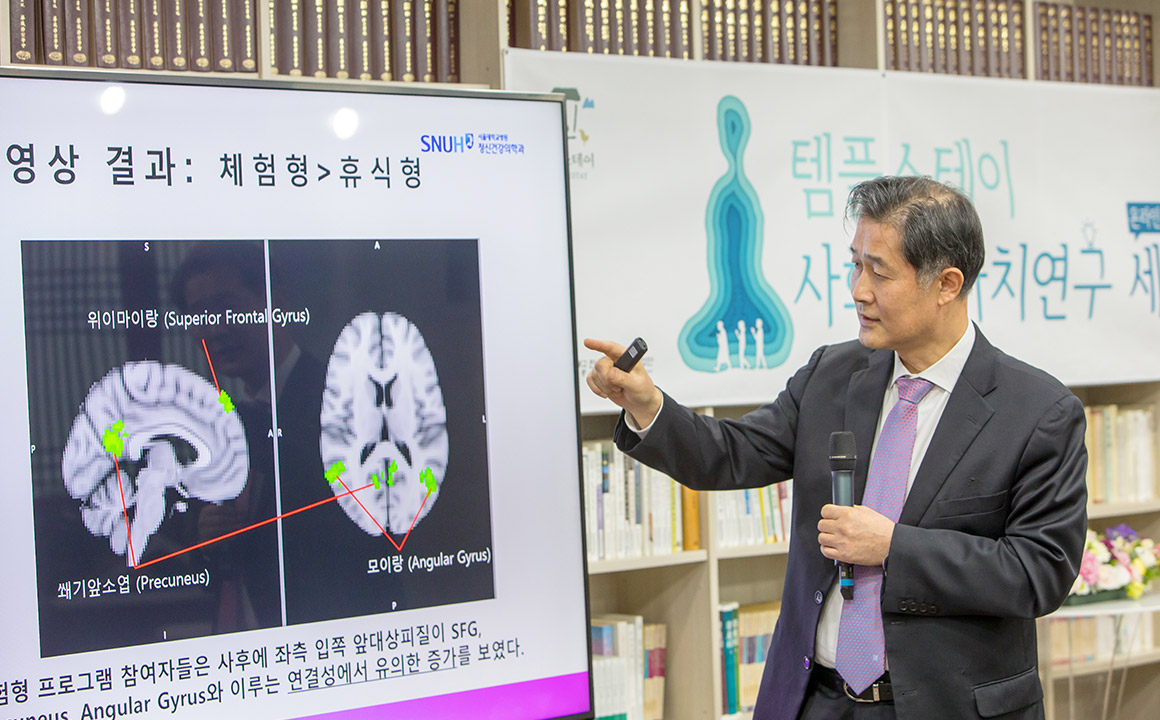
Templestay’s Value in Physical and Mental Healing: Beneficial for the Holistic Healing of Modern Society
The last speaker was Prof. Gwon Jun-su of Seoul National University Hospital’s Dept. of Psychiatry who delivered a presentation on Templestay’s value in physical and mental healing. Prof. Gwon said, “Among the various activities Templestay offers, meditation has been scientifically confirmed to have multiple positive effects in lowering the symptoms of hypertension, diabetes, and stress. Its mental health benefits are recognized all over the world. Some American scholars in the field of neuroscience have reported in their research that the Buddhist practice of meditation and modern science may come from different historical, cultural and intellectual roots, but their philosophical basis and methodologies are not seen as being very different by experts in various fields. Our research team investigated people who participated in 3-night-4-day Templestay programs and saw significant results.” Prof. Gwon conducted comparative research between the rest-oriented Templestay and the experience-oriented Templestay in which participants engage in various activities, including conversing with a monk/nun, meditation, 108 prostrations, baru gongyang (formal monastic meal), walking meditation in a forest, and other cultural activities. He found that compared to the rest-oriented one, participants in an experience-oriented Templestay showed significant improvement in terms of neuroplasticity and neuro-connections, proving its psychological healing value. He concluded his presentation by saying, “Considering such effects as increased mental resilience, improved emotive control, and enhanced cognitive control and flexibility, the holistic healing value of Templestay is needed by people of our time who are exposed to excessive stress. Therefore, the development of diverse traditional cultural programs with meditation at the center is much needed.”
With its comprehensive social values, including economic, healing and social service values, Korea’s distinctive Templestay program has a great potential to make the world a happier place. Its future direction is highly anticipated.





